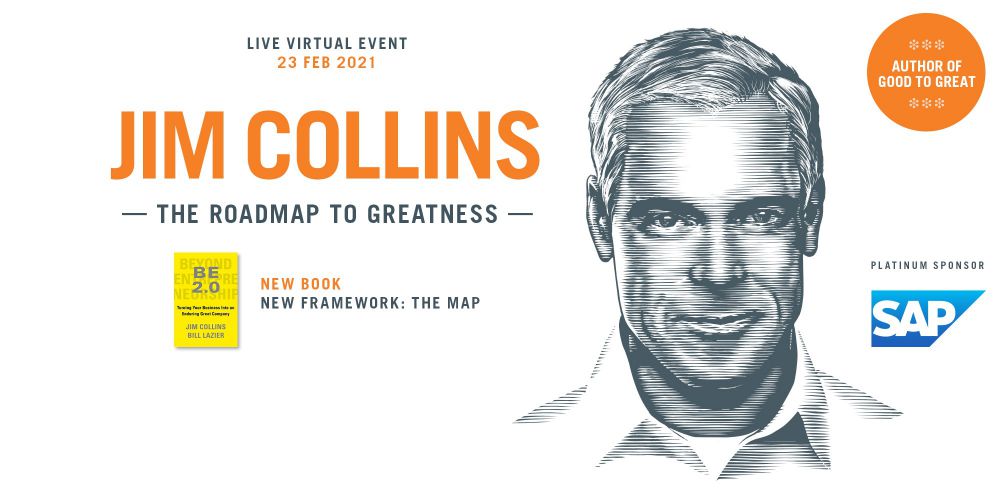Use this time to consider Seth Godin's fascinating concept on what triggers virality

(Image: Seth Godin. His latest book This is Marketing updates the ideavirus concept made famous in Purple Cow)
Way back around 20 years ago, there was a new marketing idea that excited the industry.
It was the "ideavirus."
Put simply, if a product or service was truly remarkable, people would infect others with their enthusiasm.
- For example, try this. Imagine you've just seen a purple cow in a paddock.
If you were to see a purple cow in a paddock chewing grass with a herd of black and white cows, sure as eggs you are going to "sneeze" the news ("I just saw a purple cow!!!!!") to all your friends, and they to their networks.
This is the "ideavirus" concept - a simple call to business leaders to look beyond traditional advertising and assess the viral appeal of their actual product or service.
- Make it remarkable enough, and people will do the marketing for you.
Disruptive thinker Seth Godin, dubbed the King of Marketing by Forbes, showed an uncanny ability to predict trends such as this (viral marketing), and he's still inspiring businesses today.
Given the water cooler topic right now is the behaviour of another type of virus, let's look closer at this purple cow idea - and an example of a company that's thriving by being truly remarkable.
Who Gives a Crap toilet paper
In 2012, 3 guys from Melbourne launched a toilet paper company on crowdfunding site IndieGoGo.
Famously, co-founder Simon Griffiths sat on a toilet for 50 hours until $50,000 was raised to launch the brand, which they did a year later.
They called it a remarkable name 'Who Gives a Crap', and even more remarkably, pledged to donate 50% of profits to help build toilets and improve sanitation in the developing world.
Each toilet roll was wrapped in colourful gift wrapping paper (not plastic) and delivered via subscription in big cardboard boxes with Who Gives a Crap printed on the side.
Needless to say, people told their friends about it, and they told their friends.
Today, tens of thousands of people subscribe to Who Gives a Crap. In the great 2020 Australian toilet paper grab, their remarkable customer loyalty decision to supply subscribers over new customers increased their brand virality.
Who knew toilet paper could be so remarkable it would spark an "ideavirus."
Seth Godin's concept urges businesses to be remarkable
So, let's wind back to when Seth's "ideavirus" concept took off, after his article “Unleash your Ideavirus” appeared in a 2000 edition of Fast Company. The disruptive thinker urged businesses to create something that "taps into the invisible currents that run between and among consumers."
In his iconic bestseller Purple Cow, published in 2002, he proposes this invisible current are "sneezers" who spread news to their network - spreading an ideavirus, as it were.
- "Ideas that spread are more likely to succeed than those that don't. I call ideas that spread ideaviruses." - Seth Godin, Purple Cow - Transform your Business by Being Remarkable.
The products or services they sneeze about aren't heavily advertised. They are just consistently remarked upon. They are remarkable (just like our friend the purple cow). Seth's promotion of the ideavirus gave him the title "The father of viral marketing." (Lewis, N 2008)
Indeed, his Unleash your Ideavirus article is still (remarkably) fresh 20 years later.
At this time of disruption and uncertainty, it's more important than ever to stand out and stand for something.
Remember the word "news" contains the word "new".
Writes Seth in Fast Company, unleashing your ideavirus requires you to:
- Create an online experience that offers something completely new. Or that duplicates an offline experience, but is faster, cheaper, and better;
- Have the idea behind your online experience go viral, bringing you a large chunk of the group that you’re targeting without advertising;
- Fill the vacuum in the marketplace with your version of the idea so completely that competitors will first have to un-teach your [idea] virus before they can unleash one of their own;
- Achieve “lock-in” by making it more and more costly to switch from your service to someone else’s.
- Get permission from users to maintain an ongoing dialogue with them so that you can build a relationship that gives them a beneficial experience and gives you a profit stream;
- Continue creating noteworthy online experiences to spread new [idea] viruses. Always begin by infecting your core audience of sneezers. (Godin, S 2000)
Seth predicted in 2000 that ideaviruses would be the currency of the future, because we relish the new.
- "An ideavirus is always about the new."
(Click here for great quotes from Seth Godin's bestsellers )
In 2020, the rule still applies. You need to stand out to go viral.
- "The old rule was this "Create safe ordinary products and combine them with great marketing. The new rule is Create remarkable products that the right people seek out," says Seth in Purple Cow - Transform your Business by Being Remarkable.
- Tip: If your product or service is not a purple cow, go back to the drawing board until you have a purple cow.
- "If a product's future is unlikely to be remarkable, if you can't imagine a future in which people are once again fascinated by your product, it's time to realise that the game has changed. instead of investing in a dying product, take profits and reinvest them in building something new," Seth says.
- See also: Seth Godin and Simon Sinek's Top Tips for Entrepreneurs
Given the majority of us like the status quo, Seth points out the only chance you have is to sell to people who like change, who like new stuff, who are actively looking for what it is you sell.
- "Then you hope that the idea spreads, moving from the early adopters to the rest of the curve. After the early adopters embrace what you're selling, they are the ones who will sell it to the early majority - not you," he says in Purple Cow.
How does an ideavirus catch on?
Seth, in Purple Cow, says it's often because all the viral pieces work together:
- How smooth and easy is it to spread your idea?
- How often will people sneeze it to their friends?
- How tightly knit is the group you're targeting - do they talk much? do they believe each other?
- How reputable are the people most likely to promote your idea?
- How persistent is it - is it a fad that has to spread fast before it died, or will the idea have legs and thus you can invest in spreading it over time?
To make a (remarkable) purple cow, he is strict: Don't try to make a product for everybody, because that is a product for nobody.
He recommends making a list of competitors who are not trying to be everything for everyone.
He asks, are they outperforming you?
Target a niche instead of a huge market.
Ask yourself, 'If I could pick one under-served niche to target (and dominate) what would it be?
Armed with this answer, Seth suggests launching a product to compete with your own - a product that does nothing but appeal to this market?
- Tip: Purple cow remarkable products that become an ideavirus are not "very good" products.
- "The opposite of remarkable is very good. Are you making very good stuff? How soon can you stop?" asks Seth.
Want to book our blockbuster 2021 event headliner? Don't miss Jim Collins in his February live virtual event Jim Collins - Roadmap to Greatness. Click here to book.
References:
'The Evolution of Viral Marketing' n.d., Digiday, viewed 4 March 2020 https://digiday.com/etc/the-evolution-of-viral-marketing/
Godin, S 2000 'Unleash the Ideavirus' Fast Company https://www.fastcompany.com/40104/unleash-your-ideavirus
Godin S 2002 'Purple Cow - Transform your Business by Being Remarkable'
Lewis, N 2008 'Seth Godin: The Father of Viral Marketing' New Zealand Herald https://www.nzherald.co.nz/small-business-sme/news/article.cfm?c_id=85&objectid=10540873


 Australia
Australia
 European Union
European Union
 New Zealand
New Zealand
 United Kingdom
United Kingdom
 United States
United States
 Singapore
Singapore

